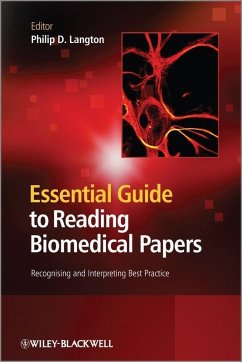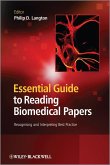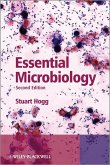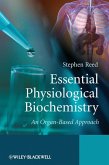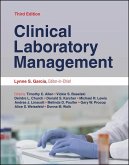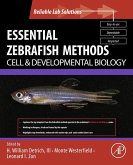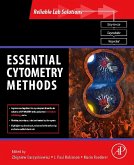Dieser Download kann aus rechtlichen Gründen nur mit Rechnungsadresse in A, B, BG, CY, CZ, D, DK, EW, E, FIN, F, GR, HR, H, IRL, I, LT, L, LR, M, NL, PL, P, R, S, SLO, SK ausgeliefert werden.
"Too many recent bioscience graduates lack significant research lab experience. Even research projects can expose them to just a few techniques. Appraisal of research papers in undergraduate courses tends to address the results, but rarely includes a critical evaluation of the researchers methodology. In reality, few bioscientists can claim a working knowledge of more than a handful of the techniques covered in this collection.
These shortcomings can be greatly overcome thanks to this book. The contributors are active research scientists of high quality. Each addresses the methods in a critical sense and provide an expert's view of the advantages and pitfalls. There is no equivalent book currently available." -- Dr David J. Miller on behalf of The Physiological Society
"Research questions require the scientist to employ molecular, cell, organism and population approaches, and the reader of scientific literature to carefully consume data from each of those environments. This book provides a clear and concise summary of the research techniques and approaches that generate data. Importantly, the authors identify appropriate uses and cautionary caveats, essential for readers who do not use the technique. This book is essential for accurate and careful interpretation of scientific literature." -- Professor Robert G. Carroll, Editor Advances in Physiology Education
"As a guide to how to properly ask questions of life and how to interpret its often-enigmatic answers, this book is a must read. Summing Up: Highly recommended. Upper-division undergraduates, graduate students, researchers/faculty, and professionals." (Choice, 1 August 2013)
"Too many recent bioscience graduates lack significant research lab experience. Even research projects can expose them to just a few techniques. Appraisal of research papers in undergraduate courses tends to address the results, but rarely includes a critical evaluation of the researchers methodology. In reality, few bioscientists can claim a working knowledge of more than a handful of the techniques covered in this collection.
These shortcomings can be greatly overcome thanks to this book. The contributors are active research scientists of high quality. Each addresses the methods in a critical sense and provide an expert's view of the advantages and pitfalls. There is no equivalent book currently available." Dr David J. Miller on behalf of The Physiological Society
"Research questions require the scientist to employ molecular, cell, organism and population approaches, and the reader of scientific literature to carefully consume data from each of those environments. This book provides a clear and concise summary of the research techniques and approaches that generate data. Importantly, the authors identify appropriate uses and cautionary caveats, essential for readers who do not use the technique. This book is essential for accurate and careful interpretation of scientific literature." Professor Robert G. Carroll, Editor Advances in Physiology Education

